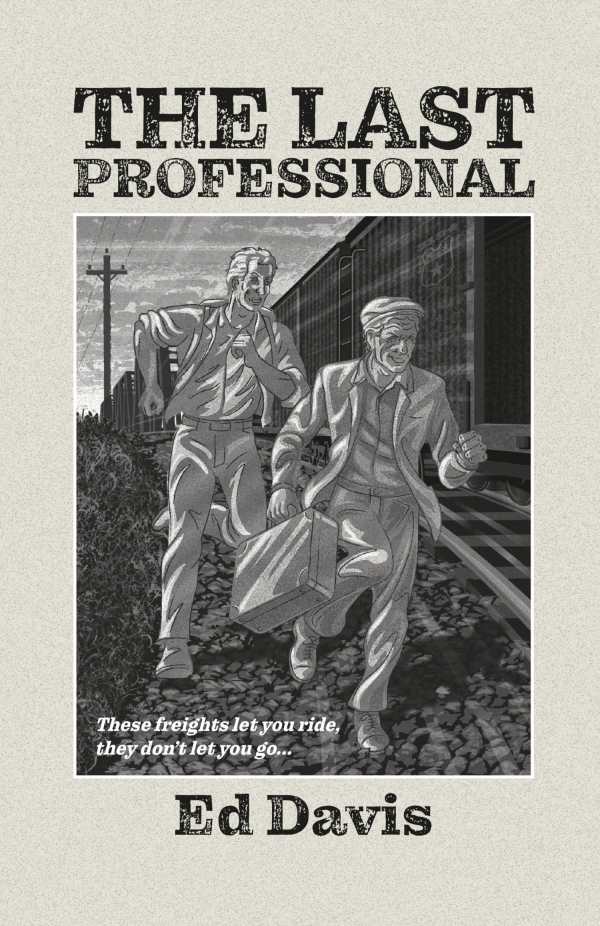The Last Professional
A man rides the rails in the pilgrimage novel The Last Professional, which proposes a free-spirited interpretation of the American dream.
In Ed Davis’s historical novel The Last Professional, gangs square off in an old school train-riding context.
When Lynden, who was accosted on a train in his childhood and deserted by his father, is cornered in his office bathroom, the encounter triggers his thirst for revenge. He flees to the railways and meets The Duke, a wizened train-hopper who teaches Lynden the lifestyle as they move across the country.
The Duke, like Lynden, is prepared to fight against a nemesis of his. Both men are constructed as variously archetypal and distinctive, and each gains something from the other’s company: The Duke acts as father figure to Lynden, and Lynden’s excitement about the train feeds the Duke’s nostalgia. Still, Lynden’s desire for revenge, and The Duke’s beef with another man, are underdeveloped features in this countercultural tale.
As truck hauling replaces the nation’s dependence on trains to move goods, The Duke’s way of life is threatened. A whirlwind of escapes moves the men’s story forward early on: it settles into background information between Lynden and The Duke’s encounters, but then takes off again. A routine develops: space is made for development between rides, and as The Duke and Lynden meet with old friends in travelers’ camps and discuss their shared goals. Their idiosyncratic conversations impart the philosophies and features of the subculture in a universalizing tone. They sometimes represent an extreme take on freedom, in which individual passions and wills are prioritized; but there are pragmatic counterpoints, too, as the men are warned about the costs of such freedom.
The book’s coverage of the subculture is visceral, developed via sensory details as of scents, belt buckles, and grizzled facial features; they are complemented by black-and-white illustrations and descriptions of cities along the way. Those whom Lynden now lives among are used to defending their solitary existence; their exchanges are gutsy and macho, and physical fights are frequent. But they also have earnest exchanges around the fire, balancing the story out.
In the end: solidarity proves to be as prevalent as aggression on the rails. The story’s tone is edgy and urgent in keeping with such uncertainty. Narrative deviations, as with Lynden’s stint working in a carnival and a medicinal romance, impede this tense work, though. And throughout, women are rendered near invisible. Still, the story jolts toward its ending, in which a confrontation represents a chance for justice.
A man rides the rails in the pilgrimage novel The Last Professional, which proposes a free-spirited interpretation of the American dream and celebrates lost traditions.
Reviewed by
Mari Carlson
Disclosure: This article is not an endorsement, but a review. The publisher of this book provided free copies of the book and paid a small fee to have their book reviewed by a professional reviewer. Foreword Reviews and Clarion Reviews make no guarantee that the publisher will receive a positive review. Foreword Magazine, Inc. is disclosing this in accordance with the Federal Trade Commission’s 16 CFR, Part 255.

